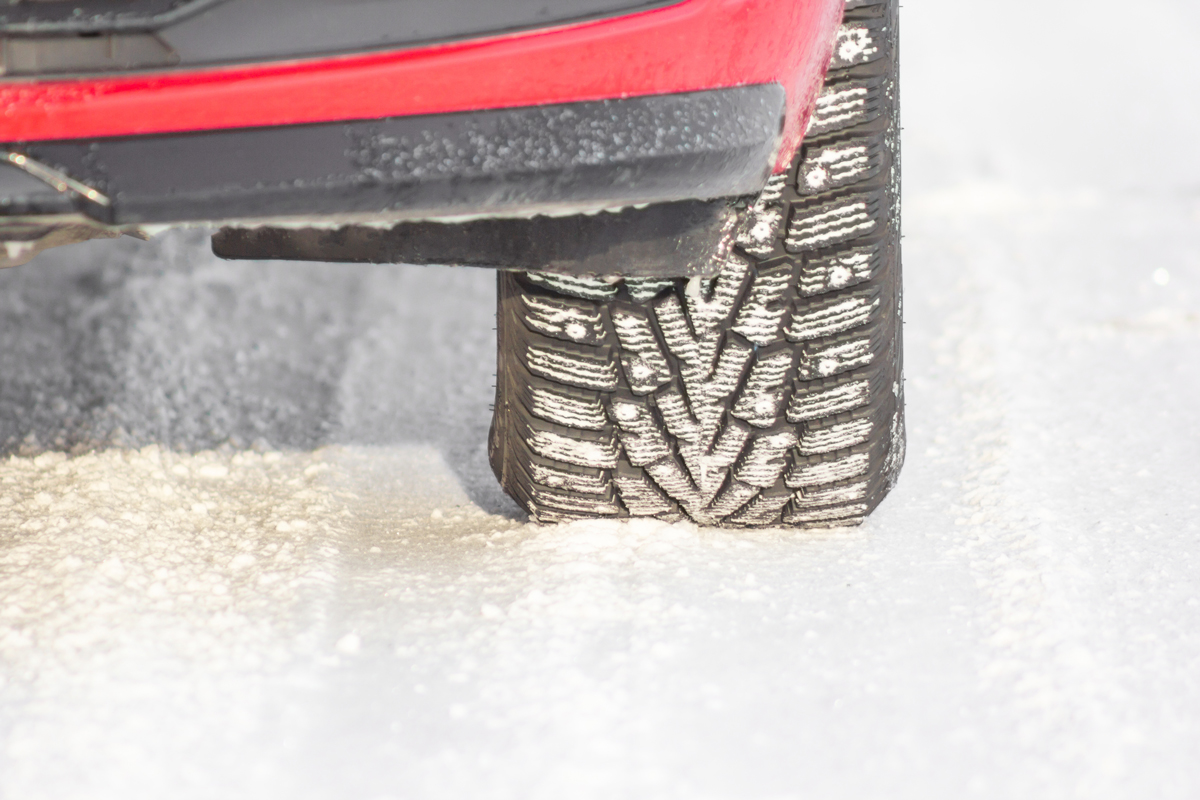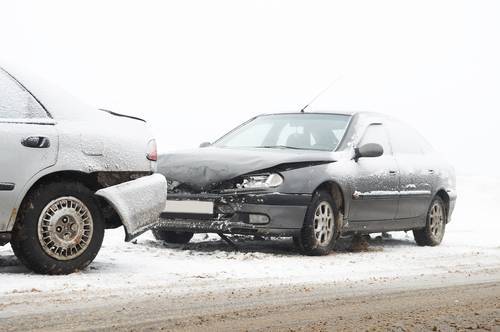
Dangerous Winter Weather Causes Several Accidents in Reno / Sparks Area

Now that it is officially winter, Nevada drivers will be seeing cold and rainy conditions in the coming months. With rain in the forecast this week for Las Vegas and more bad driving weather ahead, we at Shook & Stone would like to take this opportunity to remind drivers to be cautious on the road!
According to the captain of the highway patrol in Reno, 138 highway accidents occurred over a three-day stretch the week before Christmas due to snow and ice on the roads. There were over 50 more accidents in outlying areas. In the interest of keeping drivers safe and avoiding preventable collisions, we have put together this list of things to remember about driving in adverse weather conditions.
We advise you to consider these precautions for driving wet, icy, or snowy conditions:
- Perform a maintenance check on your vehicle before driving it in winter weather. This means checking the windshield wipers and wiper fluid tank, attaching tire chains (if driving somewhere with snow), checking the tread on your tires, and ensuring that your defroster and all headlights and taillights are in working order.
- Leave plenty of following distance between your car and the car ahead of you. This will give you more time to react in case you need to brake quickly and will minimize your chances of skidding into a rear-end collision.
- Slow down! If the roadway is wet, icy, or snowy, it is not safe to drive the same speed as you normally would. Reducing your speed will decrease your chances of losing control of your vehicle.
- Don’t use cruise control. This system may work great in sunny Nevada weather, but it can be dangerous when the roadways are slick. When you are fully in control of your vehicle’s speed, you will be better able to control it.
- Feel yourself hydroplaning? Don’t panic! Continue to steer your vehicle in the direction you want it to go and avoid slamming on the brake. This will only make the situation worse.
As drivers, it is our responsibility to ensure that we are driving safely for current weather conditions and that we maintain control of our vehicles no matter what it looks like outside. With the above tips in mind, remember that above all, pay attention to the road and the people around you. It could save a life!
Reno Winter Weather Accident Statistics
The winter of 2015 saw an unusually high number of accidents due to poor weather conditions in the Reno and Sparks area. According to the highway patrol, there were over 138 reported highway accidents over a three-day stretch just before Christmas that year. In outlying areas, there were more than 50 additional accidents. The majority of these incidents involved vehicles skidding on wet or icy pavement and rear-
The most common type of winter weather-related accident was a rear-end collision, with many of these incidents resulting in minor to moderate vehicle damage. While the majority of these accidents did not result in any serious injuries, there were still some cases where people were injured or even killed due to their inability to stay in control of their vehicles. Whether the weather is sunny or stormy, it is important to stay vigilant and drive safely in order to protect yourself and those around you.
Preventing Winter Related Accidents in Reno
Preventing Winter Related Accidents in Reno: The best way to prevent winter-related accidents in Reno is to take proper precautions when driving in adverse weather conditions. Make sure your vehicle is equipped with the necessary items to handle snow and ice, such as tire chains and a good set of windshield wipers with wiper fluid.
Be sure to leave extra room between you and the car ahead of you, and reduce your speed. Don’t use cruise control, as it can be dangerous when the roadways are slippery. If you start to feel your vehicle hydroplaning, stay calm and steer in the direction you want to go without slamming on the brakes. Most importantly, pay attention to those around you and make sure everyone is driving safely.
Safe Winter Driving Tips
1. Perform a maintenance check on your vehicle before driving it in winter weather. This means checking the windshield wipers and wiper fluid tank, attaching tire chains (if driving somewhere with snow), checking the tread on your tires, and ensuring that your defroster and all headlights and taillights are in working order.
2. Leave plenty of room between you and the car ahead of you. This will provide you with extra time to brake and turn if necessary, as well as give other drivers more time to react to your actions.
3. Reduce your speed when driving in winter weather conditions and do not use cruise control. This will help you maintain better control over your vehicle if it starts to skid or slide on wet or icy pavement.
4. Feel yourself hydroplaning? Don’t panic! Continue to steer your vehicle in the direction you want it to go and avoid slamming on the brake.
5. Pay attention to the road and those around you at all times, as this will help you better anticipate any potential hazards or dangerous situations that may arise.
Staying Alert and Aware During Winter Weather Conditions
When driving in winter weather conditions, it is important to stay alert and aware of your surroundings. Make sure you are taking the necessary safety precautions to ensure that you, your passengers, and other drivers remain safe. This means avoiding any distractions such as using your phone, eating in the car, or engaging in conversations with others.
Make sure you are taking regular breaks and that you are well rested before getting behind the wheel. This will help reduce your chances of being involved in an accident due to fatigue or a lack of focus.
If you have been injured in a car accident, you may be able to file a negligence claim against a driver who was not driving appropriately for adverse weather conditions. Consult with a Las Vegas car accident lawyer at our firm for free to see if you have a case: (702) 570-0000.
 Sunny
Sunny How to Prepare for Your Personal Injury Consultation
How to Prepare for Your Personal Injury Consultation 